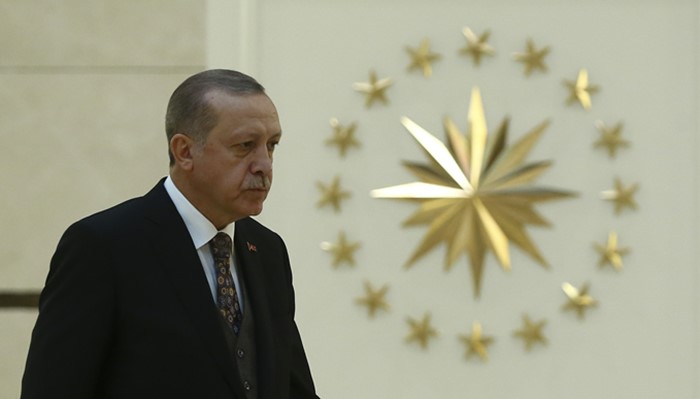by Abdullah Bozkurt
US military planners in the Department of Defense long ago made a calculated decision to not trust the regime of Turkish President Recep Tayyip Erdoğan, who has been funding, arming and training jihadist groups to put an Islamist ruler in charge of the governance of Syria. After testing him time and again since 2011, they realized he is not dependable ally despite the promises Erdoğan and his representatives had made at the negotiating table. As a result, the Pentagon was forced to choose the best available fighting force on the ground, Kurds who are aligned with the outlawed Kurdistan Workers’ Party (PKK).

It was more of a tactical decision on the part of the Pentagon than a strategic choice as the generals knew the value of NATO’s second largest military far outweighed the benefits of a Kurdish militia that they armed and equipped. The generals thought the robust US and Turkish ties at the military level would weather the noise and chatter of the Turkish political leadership. Once Syria became stabilized and the threat of radical Islamist groups was neutralized, the Pentagon’s plan was to go back to business as usual with Turkey. In the meantime, the Kurdish militia would survive as part of the regional force, very much like in northern Iraq’s Kurdistan area, and perhaps even be incorporated into the umbrella of a new Syrian national army. The State Department was not in the driver’s seat in this policy but was rather left with the task of addressing grievances and smoothing out the problems when they arose at the bilateral level.
What the Pentagon did not count on was the false flag coup attempt that Erdoğan had orchestrated on July 15, 2016 to weaken the military and turn it into a political whip to achieve his Islamist goals in the region. Most pro-Western officers who served in NATO posts were either dismissed or jailed on dubious charges, and they were replaced by neo-nationalist and anti-Western Islamist officers. Immediately after the coup bid that Erdoğan called a blessing from God, the Turkish president pushed the military into a Jarablus incursion in Syria, controlling an area of some 2,000 square kilometers. Turkish trained militias were deployed to provide security in the area, backed by the Turkish military. He is now doing the same with Afrin, where Turkish-backed rebels are fighting to take over the city under the cover of ground and aerial assaults by the Turkish armed forces.
It is clear that Erdoğan struck a deal with Russia that allowed the Turkish Air Forces to use Syrian airspace without triggering air defense systems deployed by the Russian and Syrian governments. The Americans did not like what he had been doing but decided to go along with a limited operation, perhaps to quiet down the grievances from Ankara. Both Washington and Moscow knew Erdoğan, who has lost much of his proxy forces, could do little to change the game and would eventually yield the area Turkey controls to the Syrian government. The main motivation for Erdoğan is to pump up nationalist euphoria and religious zealotry on the home front, especially before the national and presidential elections that may be called on an earlier date than next year.
The Turkish president also wanted to show that he might very well be a spoiler or a man who can adopt a scorched-earth policy in Syria when push comes to shove. By doing so, he thought he could increase his bargaining power at a time when a political settlement looms on the horizon and would soon be put on the negotiating table. Let’s not forget the fear factor that drives Erdoğan crazy, either. The Turkish president is terrified that he, along with other figures, might be held accountable for fuelling the conflict in Syria, arming and funding jihadists, once Syria is stabilized and rebuilt from the destruction. Clearly Erdoğan is afraid of sharing the fate of Serbian politician Slobodan Milošević, who led Yugoslavia into wars as its president. Milošević was charged with war crimes by the International Criminal Tribunal four years after he signed the Dayton peace agreement. This specter has been haunting Erdoğan, who sees the Syrian file as a personal game of survival rather than protecting Turkey’s national interests.
Just like the US military has been using the Democratic Union Party (PYD) and its armed wing the People’s Protection Units (YPG) at the tactical level to achieve the goals set in the short run, the Russians have also exploiting Erdoğan’s weaknesses to use him to mop up jihadist groups in Syria, where many radicals from Russia went to fight against the Bashar al-Assad government. Judging from Erdoğan’s relentless bashing and bullying of NATO, the Turkish president is also a perfect stooge to undermine the NATO alliance and damage its credibility, at least on the public perception level. Nevertheless, the Russians will shed no tears to see Erdoğan gone once they achieve their tactical goals because they do not see him as a trustworthy leader but rather consider him to be a dangerous Islamist who poses a longer-term threat to Russian interests in the Caucasus, Central Asia and the Middle East.
As a result, the Turkish military offensive in Syria’s Afrin enclave has more to do with a personal battle for Erdoğan than protecting the national interests of Turkey. If he cared about the unity of Turkey at all, Erdoğan would have addressed Turkey’s own Kurdish problem rather than repressing and further alienating the Kurds. One can only laugh at a man who has not done his homework in putting his house in order yet attempts to fix problems across the border. This policy will eventually blow up in his face while inflicting serious damage on Turkey’s national security.



